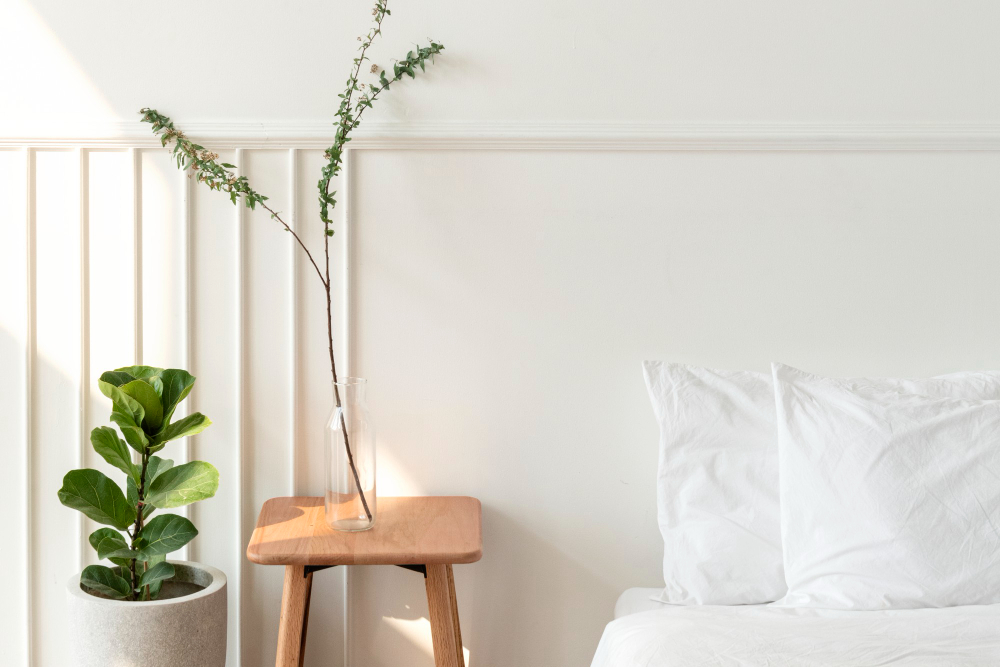Our world is drowning in excess. From overflowing wardrobes to cluttered homes, the accumulation of material possessions has become a pervasive issue. This consumerist culture not only impacts our personal well-being but also has a profound effect on the planet.
So, what’s the solution? Enter minimalism: a lifestyle characterised by intentional living and a focus on what truly matters. Beyond its benefits for mental clarity and stress reduction, minimalism offers a powerful path to sustainability.
In this article, we will explore the deep connection between minimalism and sustainability and discover how adopting a less-is-more philosophy can have a positive impact on our lives and the world around us.
The minimalist lifestyle and its environmental benefits
Minimalism is more than just decluttering; it’s a conscious shift towards a simpler way of living. At its core lies the principle of ‘conscious consumption’, which opposes the high levels of consumerism which fuel environmental degradation. By owning less, we inadvertently reduce demand for products, thereby lessening the strain on natural resources and the planet.
Furthermore, minimalism is intrinsically linked to waste reduction. The fewer possessions we accumulate, the less waste we generate. From packaging to disposal, every item we own leaves a carbon footprint. By decluttering our homes and adopting a minimalist mindset, we can significantly reduce our contribution to landfills and pollution.
Saving energy in a minimalist way
One often-overlooked benefit of minimalism is its positive impact on energy consumption. Fewer possessions mean less space required for storage, which translates to smaller living areas. Smaller living spaces are inherently more energy-efficient, requiring less heating in winter and cooling in summer.
Additionally, decluttering can reveal hidden energy-saving opportunities. For example, removing excess items from around radiators can improve their efficiency. By streamlining our belongings and creating a more open living space, we can reduce our carbon footprint, potentially reducing reliance on energy-intensive heating systems and lowering the overall cost of installing reliable central heating.
Beyond heating, minimalism can impact energy consumption in other ways. A clutter-free home allows for better airflow, which can reduce the need for artificial cooling. Furthermore, minimalist kitchens with fewer appliances consume less energy.
Focusing on essential items and eliminating unnecessary gadgets can significantly reduce our overall energy usage. Opting for natural materials, supporting fair trade products, and investing in durable items are all steps towards a greener household.
Additionally, minimalism encourages a DIY mindset. Repairing instead of replacing, repurposing items, and finding creative uses for unwanted possessions can significantly reduce waste and environmental impact. A minimalist home is often a canvas for innovation and sustainable living.
Creating a sustainable, minimalist home
Adopting a minimalist lifestyle in your home can offer many benefits, but implementing changes can take time. Embracing minimalism doesn’t mean a complete overhaul overnight. Here are five simple steps to begin your journey:
One-in, one-out rule:
For every new item you bring into your home, let go of an old one. This prevents clutter accumulation and encourages thoughtful purchases.
Declutter one area at a time:
Don’t feel overwhelmed by tackling your entire home at once. Focus on one area, like a drawer, shelf, or closet, and declutter it completely. This small victory will motivate you to continue.
Digital detox:
Minimalism isn’t just about physical possessions. Take a break from social media, excessive emails, and unnecessary apps. This digital declutter can significantly reduce mental clutter.
Conscious consumption:
Before making a purchase, ask yourself if you truly need the item. Consider if it aligns with your values and lifestyle. This mindful approach helps prevent impulse buying.
Create a minimalist corner:
Designate a small space in your home as your minimalist haven. Keep it clutter-free and filled with items that bring you joy. This can serve as inspiration for the rest of your home.
Minimalism is a journey, not a destination. Enjoy the process of simplifying your life and finding what truly matters to you. Along the way, challenges may arise. Balancing a minimalist lifestyle with societal expectations and consumer pressures can be difficult. Additionally, finding the right balance between minimalism and practicality is essential to avoid feeling deprived or restricted.
To overcome these hurdles, it’s important to focus on the long-term benefits. By prioritising experiences over possessions and connecting with like-minded individuals, it’s possible to build a strong foundation for a sustainable, minimalist lifestyle. Remember, small steps can lead to significant changes. Every conscious choice to reduce consumption and waste brings us closer to a more sustainable future.
A sustainable future starts at home
The synergy between minimalism and sustainability is undeniable. By embracing a less-is-more philosophy, we can significantly reduce our environmental impact, conserve resources, and create a healthier planet for future generations. From conscious consumption to energy efficiency, the benefits of a minimalist lifestyle extend far beyond personal satisfaction.
While adopting a minimalist approach may require initial adjustments, the rewards are substantial. By decluttering our homes and minds, we create space for what truly matters: meaningful connections, personal growth, and a harmonious relationship with the planet.
Let us inspire others to join the movement towards a more sustainable and fulfilling life.
Remember, small steps can lead to significant change. Start your minimalist journey today and discover the transformative power of living with less.

